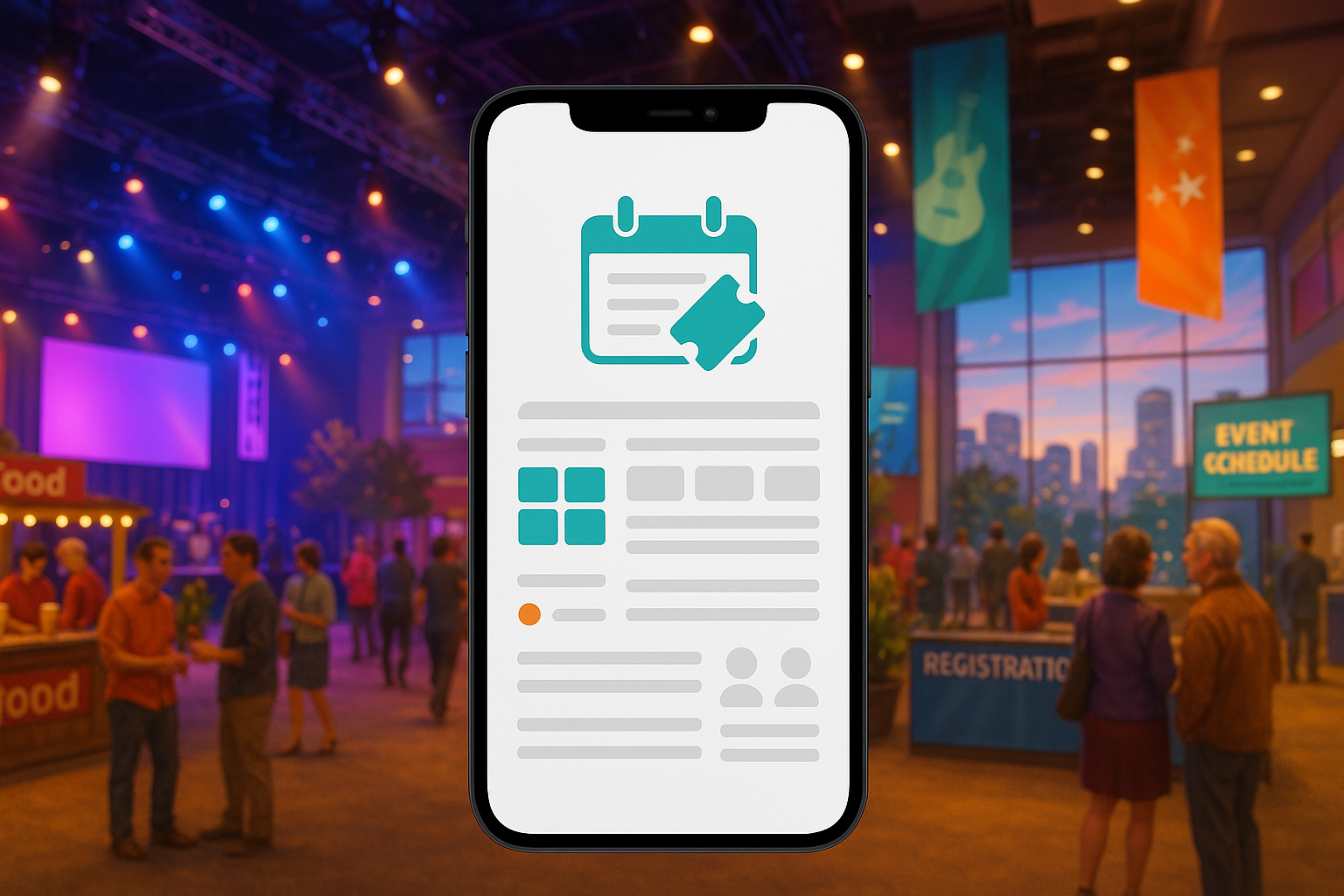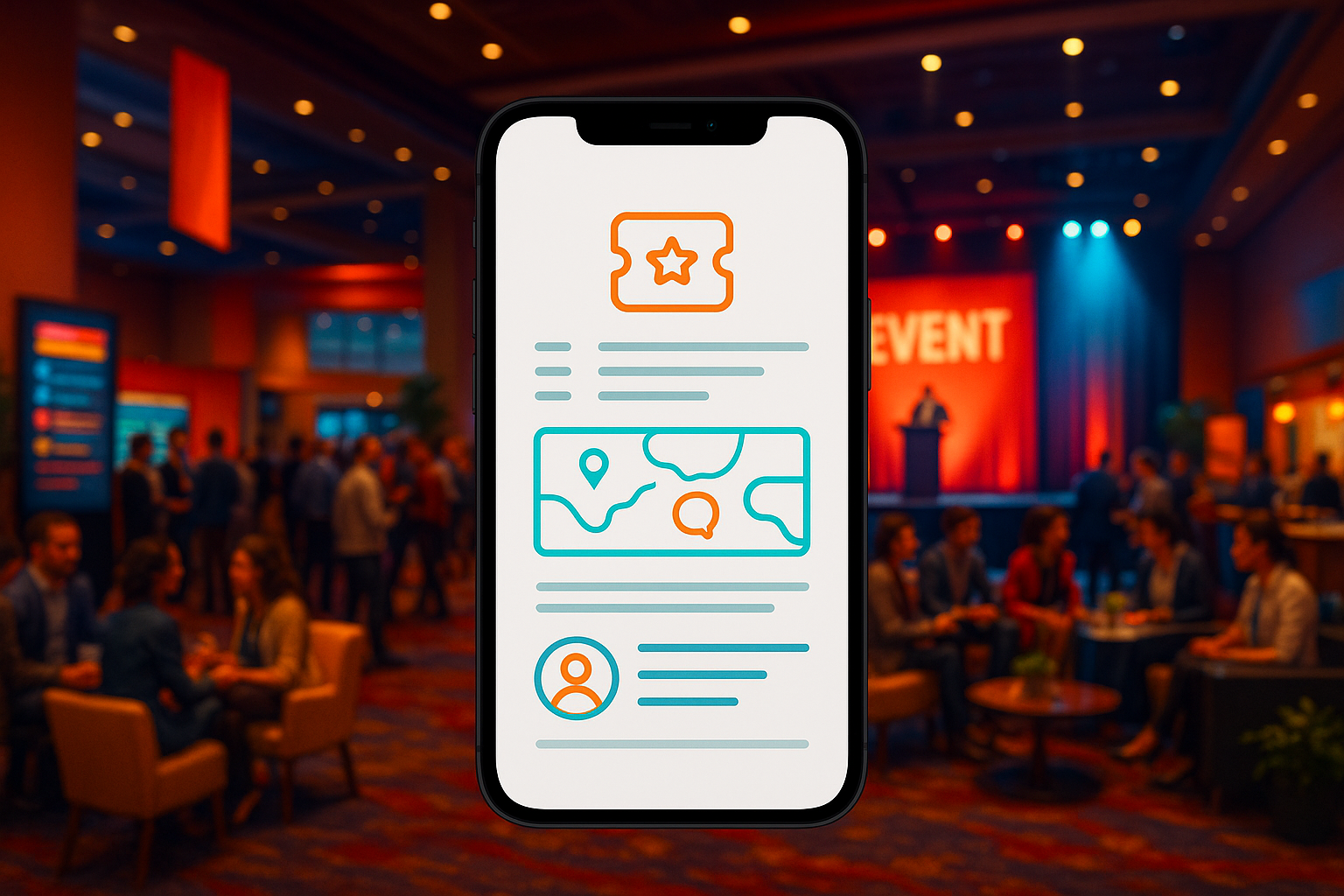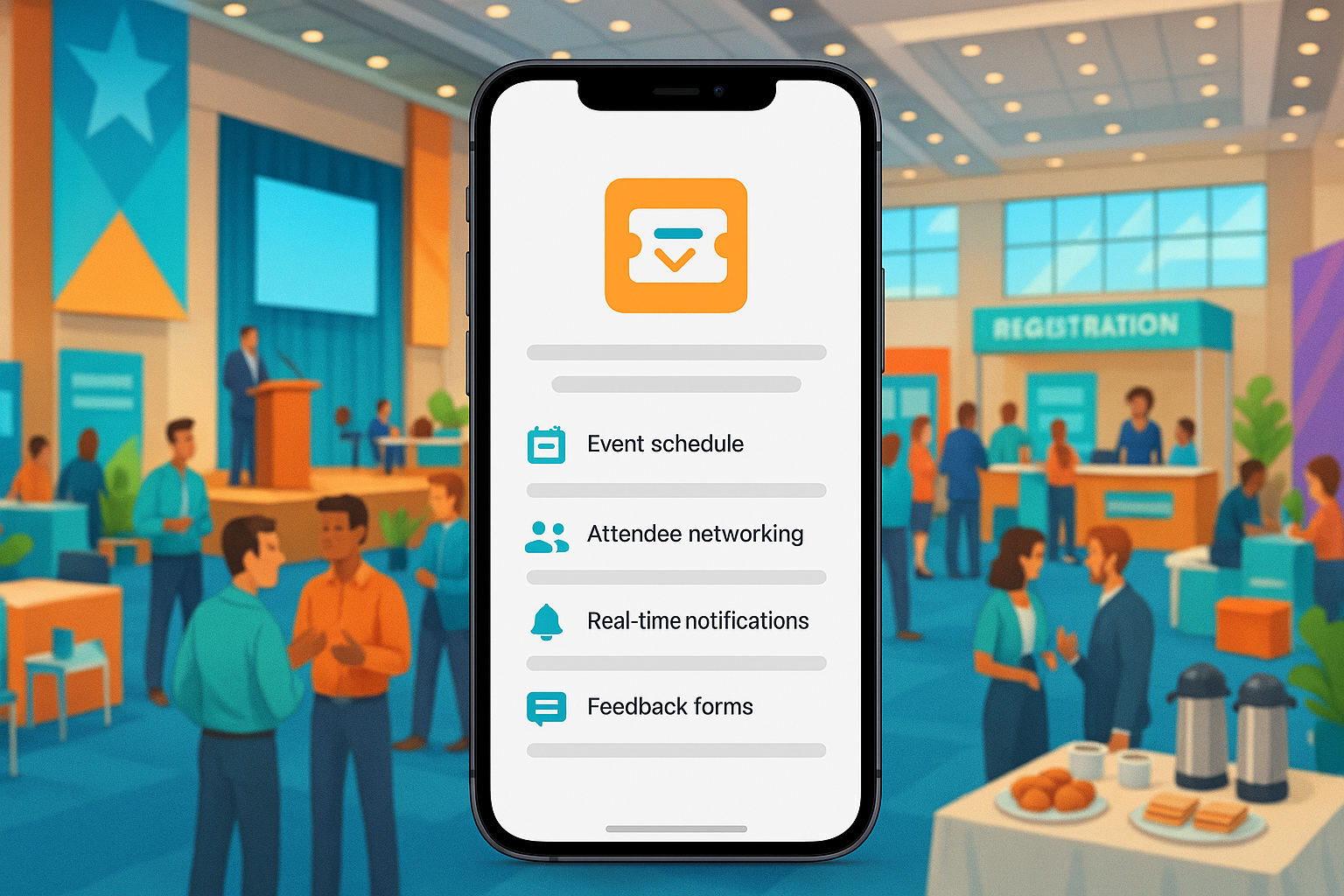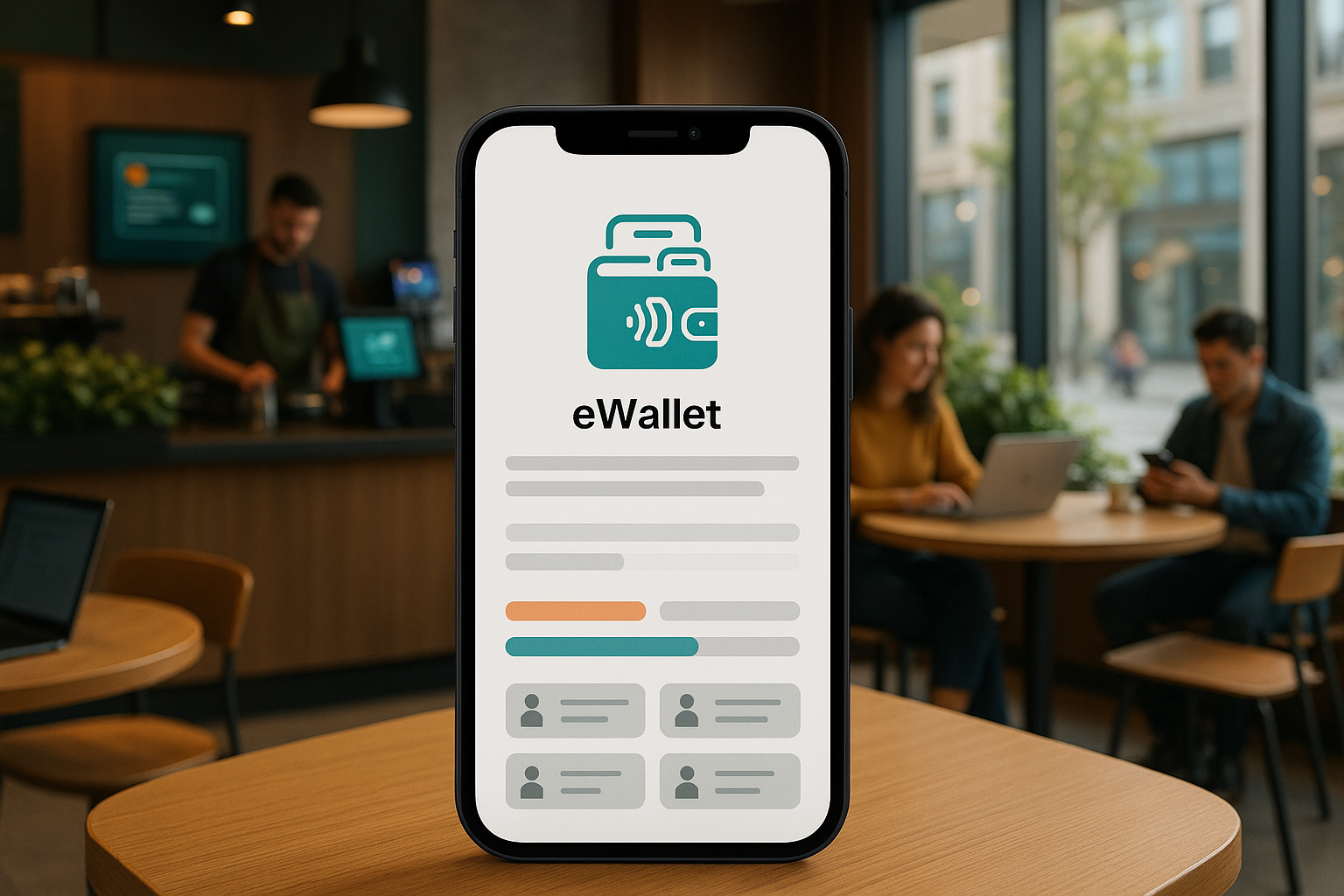Introduction
In an increasingly digital world, the success of any event—from international conferences and music festivals to intimate workshops and classes—hinges on a seamless and engaging attendee experience. Event booking applications have evolved from simple ticketing portals into sophisticated platforms that manage every facet of an event’s lifecycle. However, the path to developing such an app is fraught with challenges. The complexity of features, the need for robust backend infrastructure, and the high cost of development can quickly overwhelm even experienced in-house teams.
This article serves as your comprehensive guide to event booking app development. We will dissect what these applications truly are, explore the significant hurdles of building one from scratch, and categorize the different types of apps available. Furthermore, we will provide a realistic breakdown of development costs and discuss what to look for in a top-tier development partner.
As a leading US AI-powered app development firm, we at MetaCTO have over two decades of experience transforming ambitious ideas into successful mobile applications. We understand the intricacies of integrating complex features like event booking into new or existing products. Throughout this guide, we will share insights gleaned from launching over 120 successful projects to help you navigate this process and make informed decisions for your business.
What is an Event Booking App?
An event booking app is far more than a digital calendar or a simple payment gateway. It is a comprehensive ecosystem designed to streamline event management, enhance attendee engagement, and provide valuable analytics for organizers, sponsors, and exhibitors. These applications serve as the central hub for all event-related activities, from initial registration to post-event networking. The features of a modern event app cover a wide spectrum of needs, including content management, communication, analytics, and lead generation.
A truly effective event app is built on a foundation of powerful features that work in concert to create a frictionless experience for both organizers and attendees.
Core Management and Ticketing Features
The backbone of any event app is its ability to manage logistics with precision and ease.
- Advanced Event Ticketing System: Modern apps go beyond simple ticket sales. They offer sophisticated ticketing systems that can create and manage waitlists directly from a dashboard, automatically generating tickets upon guest confirmation. To enhance brand identity, these platforms allow users to incorporate their own custom domain and brand collateral, including logos and taglines, directly onto the tickets. Event organizers can also add discounts, coupon codes, and special offers before selling tickets directly from the platform, which helps eliminate major overhead costs.
- Badge Printing and Check-in: The app gives organizers complete control over badge printing and scanning. This includes tools to design and customize event badges to match the event’s branding. For maximum efficiency, badges can be printed live and on-site after confirming attendee details. To streamline entry, apps allow speakers and attendees to scan a secure QR code for self-check-in at registration kiosks, reducing wait times and manual labor.
- Schedule and Content Management: Dynamic scheduling is critical. Event apps empower users to plan, create, modify, and broadcast event schedules directly within the app. Organizers can update the session calendar in real-time and instantly notify attendees about any changes. Beyond schedules, these apps serve as content hubs where users can create detailed event guides and speaker profiles. The importance of this is underscored by the fact that 89.3% of event professionals claim to use speaker listings during their event journey.
Attendee Engagement and Networking
An event’s success is often measured by the level of attendee engagement. Modern apps are packed with features designed to foster interaction and connection.
- Push Notifications and Communication: Apps utilize push and email notifications to keep attendees informed. During an event, live notifications can share session updates, timing changes, and market sponsor content. By also leveraging email, hosts can cover all communication touchpoints.
- Event Matchmaking: This feature transforms networking from a game of chance into a targeted, data-driven activity. It works by identifying common tags and interests that attendees select during registration. Guests can then swipe through profiles, assess details, and analyze match percentages to connect with the most relevant people, maximizing their networking efficiency.
- Gamification: To boost engagement, 59% of event apps use gamification. This feature lets organizers create exciting challenges for attendees, such as visiting sponsor booths or attending specific sessions, and allows for rewarding participants upon successful completion.
- Social Feed, Polls, and Q&A: Apps can create a private social platform where guests can interact during and after an event. This social feed becomes a hub for live polls, Q&A sessions, and surveys, which can also be deployed as independent features within the app. Such interactive elements are highly effective; 49% of event app providers vouch that clients interact most with the aid of engagement elements.
Data, Analytics, and Sponsorship
Data is the currency of modern event management, providing insights that drive revenue and improve future events.
- Lead Retrieval and Registration Data: Using simple and secure scanners, apps easily check in registrants, helping to get credible and accurate registration data. This allows organizers and exhibitors to track the attendance of leads and retrieve lead data without manual intervention.
- Sponsor and Exhibitor Management: Event apps offer powerful tools for sponsors. They can onboard not just guests but also exhibitors onto the dashboard. Organizers can lend digital spaces and slots to sponsors to showcase their visual merchandise, and attendees can access more details about sponsors and their products directly through the app.
- Sales Reports and Analytics: A built-in analytics dashboard allows for the quick tracking of event ticket sales. This sales tracking data is invaluable, telling the event host, sponsors, and exhibitors which areas or sessions have worked well and how to make improvements to ensure more sales in the future.
Finally, many event apps are designed with offline capabilities, ensuring that attendees can access crucial information like schedules and maps even without a stable internet connection.
Reasons it is Difficult to Develop an Event Booking App In-House
While the allure of building a custom event app in-house is strong, the reality is that it is a monumental undertaking fraught with technical and logistical challenges. The sheer breadth of features detailed above hints at the underlying complexity. Hiring a specialized development agency like us is often a more strategic, cost-effective, and successful approach. Here are the primary difficulties of in-house development.
Overwhelming Feature Complexity
An event booking app is not a single piece of software but a collection of interconnected systems. Building a secure ticketing system with payment gateway integration, a real-time notification engine, an AI-powered matchmaking algorithm, a dynamic scheduling module, and a comprehensive analytics dashboard requires a team with diverse and deep expertise. An in-house team, often composed of generalists, may lack the specialized knowledge needed to build each of these components to a high standard.
The Challenge of Third-Party Integrations
Modern apps do not exist in a vacuum. Event apps must seamlessly integrate with a host of third-party services, including payment gateways (like Stripe or PayPal), CRM systems (like Salesforce), social media platforms, and even hardware like on-site badge printers. Each integration adds another layer of complexity, requiring development time to implement the API, manage data synchronization, and handle potential errors or API changes. The licensing fees associated with these services can also add to the overall cost.
Ensuring Scalability and Performance
Event apps are subject to extreme fluctuations in traffic. A ticket launch can bring tens of thousands of users to the app simultaneously, while the app must perform flawlessly during the event itself. Building a backend architecture that can scale on-demand to handle these peaks without crashing requires advanced expertise in cloud computing (AWS, Google Cloud), load balancing, and database optimization. A performance failure during a critical moment can irrevocably damage the event’s reputation.
Cross-Platform Development Hurdles
Your audience uses both iOS and Android devices, meaning you need an app that works perfectly on both. Developing separate native apps for each platform is the most expensive and time-consuming route. While cross-platform frameworks like React Native or Flutter can reduce costs, they introduce their own set of challenges, including performance tuning and managing platform-specific nuances. An experienced agency like MetaCTO has the expertise to select the right development approach and navigate these complexities, which is central to our Custom Mobile App Development service.
Security and Compliance Risks
Event apps handle sensitive personal data and financial information. This requires strict adherence to security best practices, data encryption standards, and regulations like PCI DSS for payment processing. A security breach is not just a technical failure; it’s a catastrophic business failure that can lead to financial loss, legal liability, and a complete loss of trust. In-house teams rarely have dedicated cybersecurity experts to ensure the application is fortified against threats.
The High Cost of a Dedicated Team
As the cost breakdown facts show, building an app requires a significant investment. This cost is driven largely by the need for a complete development team, including UI/UX designers, frontend and backend developers, quality assurance engineers, and a project manager. Assembling, managing, and retaining such a team for a single project is a massive operational overhead that most companies are not equipped to handle.
By partnering with an agency like MetaCTO, you gain access to a seasoned, multi-disciplinary team and a proven process without the burden of hiring and management. We mitigate these risks, ensuring your investment results in a high-quality, scalable, and secure application that meets your business goals.
Different Types of Event Booking Apps
The term “event booking app” is a broad umbrella that covers several distinct types of software, each tailored to specific use cases. Understanding these categories will help you identify the right solution for your needs.
Event Ticketing Software
This is the most traditional type of event platform, designed for events characterized by high attendee volume and multiple ticket tiers. It is the go-to solution for festivals, large-scale conferences, music gigs, and other one-off events that require a quick, self-service method for selling tickets either online or at the gate.
- Core Functionality: This software provides event organizers with all the essential tools they need to run a successful ticketed event.
- Key Features: It often gives organizers the ability to create reserved seating charts, accept a variety of payments, and build custom landing pages from which they can market and sell event tickets.
Booking Systems
Booking systems are more specialized and are aptly used for services, classes, courses, and facilities. Their primary focus is on managing capacity for repeatable group events, rather than selling tickets for a single, large-scale event.
- Common Users: Smaller businesses like gyms, yoga studios, training centers, and salons use booking systems to control the number of guests they accommodate within a certain time or to host daily timed sessions.
- Key Advantages: These systems remove unnecessary friction in the customer service experience. Clients can book and pay online, and only need to present identification for their booking instead of spending time at a reception desk filling out forms. They can also provide flexible payment terms, such as monthly or yearly installments for ongoing courses.
- Flexibility: A robust booking system can allow an organizer to list multiple event types, such as private one-to-one bookings alongside hourly group events that run throughout the day. They are generally designed from the ground up to suit the complex time- and location-based needs of teachers, salons, and gyms.
Appointment Scheduling Tools
This category of software functions similarly to a digital calendar management system. It is less about booking a spot at an “event” and more about scheduling a meeting between individuals or small groups.
- Primary Users: These systems are invaluable for consultants, sales teams, and customer support departments.
- Main Function: An appointment scheduling tool helps these professionals manage and schedule meetings with external clients or internal colleagues, automating the process of finding mutually available times and sending confirmations and reminders.
Cost Estimate for Developing an Event Booking App
Determining the cost of developing an event management app is complex, as the final price is influenced by a multitude of factors. While a precise quote requires expert consultation, we can outline the general cost ranges and the key drivers that impact the budget. Generally, an event management app can range from $10,000 to $150,000 or more.
Understanding where your project might fall within this spectrum requires breaking down the app by complexity.
| App Version | Estimated Cost Range | Description |
|---|---|---|
| Basic Version | $10,000 - $30,000 | A basic app with limited, core functionality. This might include simple event listing, user registration, and a standard calendar view. It would likely use a template design rather than a custom UI. |
| Medium Version | $30,000 - $60,000 | A mid-complexity app with more advanced features. This could include a ticketing system with payment integration, attendee profiles, basic networking features, and a custom-designed user interface. |
| Complex Version | $60,000 - $150,000+ | A feature-rich, complex application. This version would include all the features of a medium app plus advanced functionalities like AI-powered matchmaking, gamification, live polling, a detailed analytics dashboard, third-party CRM integrations, and offline capabilities. |
Key Cost Drivers
Several factors directly influence where your app will land in these price ranges. Planning your project with these in mind is crucial for managing your budget effectively.
- Feature Complexity: This is the most significant cost driver. The more features an app has, and the more complex they are, the higher the development cost. An app with basic event listings will be substantially cheaper than one with real-time matchmaking and on-site badge printing.
- Design Complexity (UI/UX): Custom designs, intricate animations, and highly interactive elements can significantly increase the cost compared to a simple, standard design based on templates. A superior user experience is often worth the investment, but it must be budgeted for.
- Development Team Size and Arrangement: A larger development team with a full complement of members—including a project manager, UI/UX designers, iOS/Android developers, and QA engineers—will increase the cost but also typically leads to a higher-quality product delivered more efficiently.
- Platform Choice: Developing an app for a single platform (either iOS or Android) is cheaper than creating two separate native apps. Opting for cross-platform development using frameworks like React Native or Flutter can help reduce costs if you need to be on both platforms, but it requires specific expertise.
- Third-Party Integrations: Integrating third-party services like payment gateways, CRM systems, or social media platforms adds to the cost. Each integration requires development time for implementation and testing, and some services may come with their own licensing fees.
Ultimately, the cost of your event management app will vary significantly based on your specific goals and requirements. Understanding these cost drivers allows you to plan accordingly and ensures your investment results in a high-quality application. For an accurate price that reflects your unique project, we highly recommend consulting with experts in bespoke app development services.
Top Event Booking App Development Companies
Choosing the right development partner is arguably the most critical decision you will make in your app development journey. A top-tier company does more than just write code; they act as a strategic partner, guiding you from concept to launch and beyond. When evaluating potential partners, look for companies that offer market research, in-depth competitor analysis, and have certified resources and tools to deliver a result-oriented app within your budget. A key indicator of a top company is the willingness to provide an expert consultation to establish an accurate quote and a clear project roadmap.
1. MetaCTO
At MetaCTO, we position ourselves as the premier choice for businesses looking to build sophisticated, AI-enabled mobile applications. With 20 years of app development experience and over 120 successful projects launched, we have a proven track record of delivering excellence. Our client roster, which includes trusted brands like ATP Tour and Liverpool FC, speaks to our ability to handle complex projects for organizations of all sizes.
What truly sets us apart is our holistic, partnership-based approach. We don’t just build your app; we guide you through every stage of its lifecycle:
- Validate: We can help you turn your idea into a Minimum Viable Product (MVP) in as little as 90 days. Our Rapid MVP Development service is designed to help you test your concept, gather real user feedback, and secure investor funding quickly and efficiently.
- Build: We handle the entire process—from strategy and design to development and launch—ensuring your app is market-ready and provides a seamless user experience from day one.
- Grow & Monetize: Post-launch, we help you acquire and retain users through data-driven strategies like A/B testing and analytics. We also work with you to implement effective app monetization strategies, whether through subscriptions, in-app purchases, or ads.
- Evolve: As your business scales, we ensure your app evolves with it, upgrading your technology stack to stay competitive in a fast-moving market.
Integrating complex event booking functionality into a mobile app is difficult. It requires a deep understanding of scalable architecture, secure third-party integrations, and engaging UI/UX design. Our team of senior, US-based developers has mastered these challenges. We provide the strategic guidance of a Fractional CTO combined with the execution power of a world-class development team, ensuring your project avoids common pitfalls and achieves its full potential.
Finding Other Quality Partners
When looking beyond MetaCTO, apply the same rigorous standards. A top development company should offer a free initial consultation to dive deep into your goals. They must demonstrate a clear understanding of your industry by offering to conduct market research and competitor analysis. Most importantly, they should have a transparent process and a portfolio of successful, complex apps that prove they possess the certified resources and tools necessary to deliver a high-return investment.
Conclusion
Developing an event booking application is a complex but rewarding endeavor. As we’ve explored, these apps are powerful tools that extend far beyond simple ticketing, offering rich features for management, engagement, analytics, and monetization. We’ve dissected the anatomy of a modern event app, highlighted the significant challenges of in-house development—from feature complexity and integration hurdles to scalability and security—and outlined the different types of platforms and their associated costs.
The journey from a great idea to a successful, market-ready application is challenging. The key to success lies in making informed decisions and, most importantly, choosing the right development partner. A partner with a proven track record, a strategic process, and deep technical expertise can mean the difference between a stalled project and a thriving digital product.
If you’re ready to build a new event booking app or integrate these powerful capabilities into your existing platform, don’t navigate the complexities alone. We invite you to talk with an expert at MetaCTO. Let’s discuss your vision and build a technology roadmap that will drive engagement, increase revenue, and deliver an unforgettable experience for your users.






